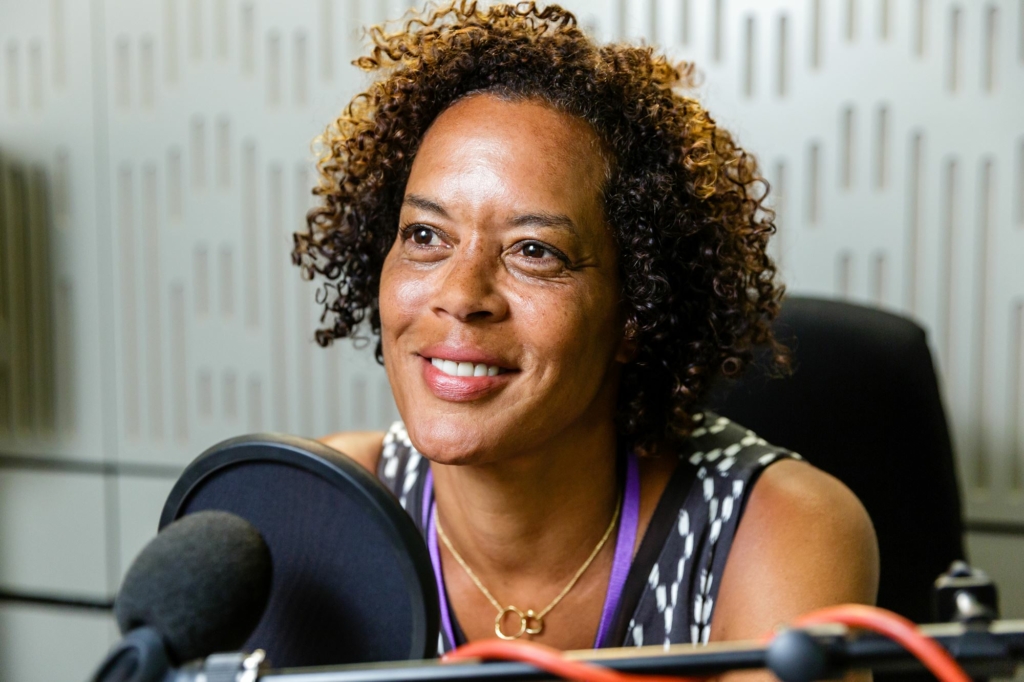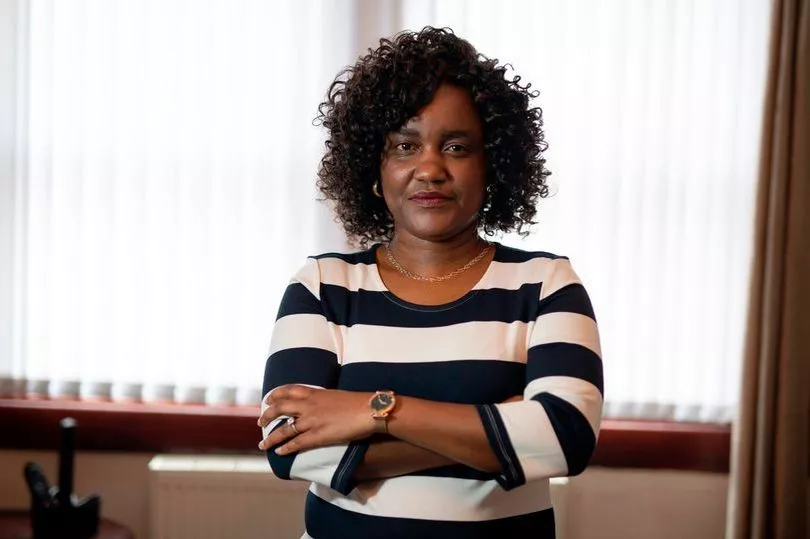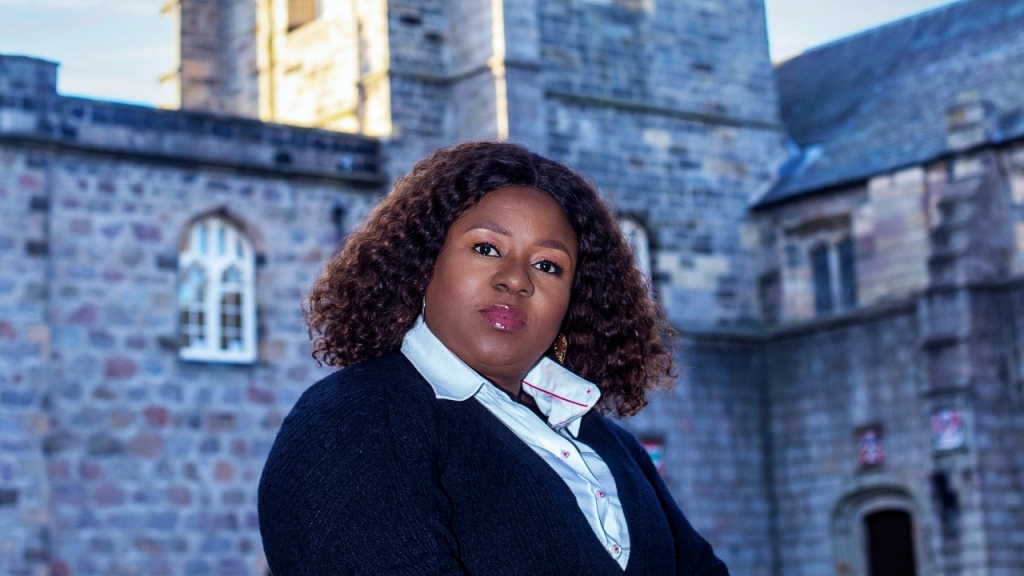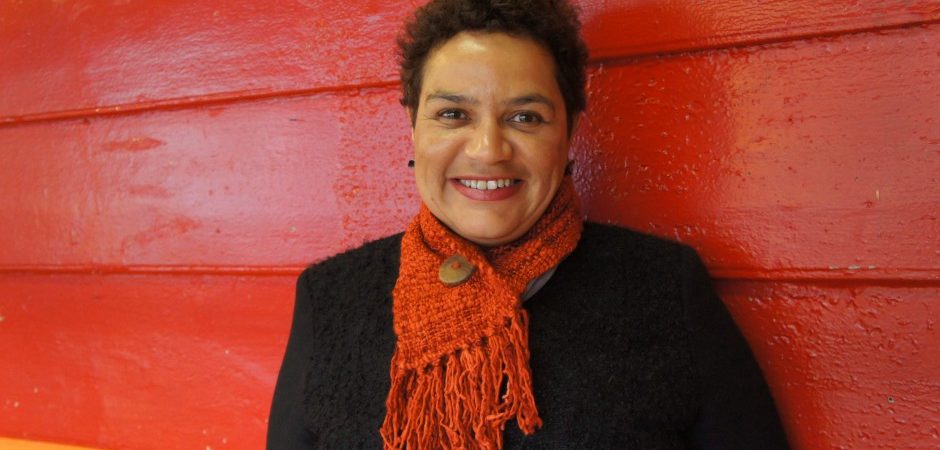Black History Month: Celebrating and Saluting our Scottish Sisters
” … remember that Black history is our collective history and that we are writing the story of tomorrow today with every choice we make. This Black History Month; let’s stand with our sisters and choose a fair and just Scotland without racism” argues Khutso Dunbar.
Black History Month is in full swing with programming and events across the country aimed at bringing attention to the often ignored and sometimes silenced voices of the Black and ethnic minority community. As Scottish society becomes increasingly diverse, this month becomes more meaningful as a time to reflect on how history has impacted the present. While we lament and learn from the past ills of slavery, colonialism and the ongoing racism that plagues our society- we must also respond and recognise the opportunities for a better future.

Aminatta Forna
This month’s theme is: ‘Celebrating and saluting our sisters’- an opportunity to shed light on the contributions of Women of Colour. In Scotland, we have much to salute and celebrate. We start by paying homage to a lesser-known suffragist Jessie Margaret Soga, born in 1870 to a Black South African father of Xhosa heritage and a White Scottish mother. Soga was one of the key members of the Women’s Freedom League branch in Hillhead, Glasgow and known as Scotland’s only Black/mixed race suffrage campaigner. She was also a singer and music teacher performing as a soloist with the Kelvingrove United Presbyterian Choir at the Coatbridge Corporation Recitals. Soga used her music career to help fund the efforts of the Women’s Social and Political Union, a Women’s rights political group to which she belonged. Women received the right to vote in 1918 and Soga’s activism and contributions in Scotland were noted as significant.
Other figures of note include Aminatta Forna, OBE, a multi-award-winning author born in Bellshill, Scotland to a Scottish Mother and a Sierra Leonian physician father (pictured above). Along with her writing, Forna has also worked as a reporter, produced various documentaries for the BBC and is a founder of a charity to build schools in her father’s home of Sierra Leon. Jacqueline Margaret Kay, CBE, FRSE, FRSL is another celebrated author of Black heritage who was born in Edinburgh to a Nigerian father and Scottish mother and grew up in Bishopbriggs. Jackie Kay as she is widely known; is a poet, playwright and novelist who was Scotland’s Makar (national poet laureate) from 2016 to 2021.

Debora Kayembe
Three of Scotland’s universities have also added to the accolades of Black History by recently appointing Black women as rectors. The University of St Andrews appointed Leyla Hussein, OBE, as their third female rector and first woman of colour in 2020. Along with her rectorship, Hussein is a psychotherapist and social activist who heads multiple non-profits aimed at safeguarding women against violence. This historic appointment was followed by the appointment of Martina Chukwuma-Ezike in 2021 as the first Black woman rector at the University of Aberdeen. Originally from Nigeria, Chukwuma-Ezike is the CEO and founder of Scotland’s only dedicated asthma charity, the Asthma and Allergy Foundation and advocates for better awareness. In the same year, the University of Edinburgh appointed Debora Kayembe, a human rights lawyer, linguist and political activist, who came to the UK in 2005 as an asylum seeker from the Democratic Republic of the Congo (DRC). Kayembe is currently a member of the Scottish Socialist Party and the founder of the charity ‘Full Options’ which promotes human rights and peace. In recognition of her contributions to Scottish society, she became the first African to have their portrait erected by the Royal Society of Edinburgh in 2019.

Martina Chukwuma-Ezike
These exceptional women are exactly that, the exception and not the rule in Scotland. Their phenomenal achievements are even more remarkable because they sit against a backdrop of longstanding societal inequalities and racism which pose vexing barriers to achievement for most people of colour. Women of colour are further marginalised by compounding gender discrimination. In Scotland, Ethnic minorities, who make up 4% of Scotland’s population, have the worst rates of poverty in the nation, according to government statistics. While the percentage of White Scots living in poverty stayed the same between 2020 and 2022 at 18%, the disparities experienced by ethnic minorities have grown- with the percentage of Black and Mixed populations living in poverty increasing from 43% to 48% between 2020 and 2022, while the percentage of British Asian/Asian groups increased from 41% to 49% in the same period. Additionally, compared to all other priority groups, such as 28% of homes with a disabled family member and 38% of single-parent households, ethnic minority households had the highest prevalence of child poverty at 39%. Some of these vulnerabilities can occasionally coexist such as in an example of an ethnic minority, disabled, single parent who would face intersecting and compounding disadvantages.

Jackie Kaye
The Office for National Statistics (ONS) found that there is a gender pay gap of 18.4% and an ethnicity pay gap of 10.3% in Scotland. This means that ethnic minority Scots are paid less than White Scots in comparable positions and ethnic minority women are doubly jeopardized. Furthermore, Scotland’s ethnic minority population is much more likely to have qualifications at “degree level or higher,” at 59% compared to 35% of the White Scottish population. Yet, despite these accomplishments, employment outcomes for qualified ethnic minorities are worse, with an employment rate of 73.0% vs 86.5% for the equivalent white population. These disparate labour market conditions combine to produce poor economic outcomes for ethnic minority women in Scotland who already face lower employment rates of 64% for Black female Scots compared to 72% for White female Scots.
These statistics show that inequality is an unconscionable stain on Scottish society. So, as October rolls on, we give a nod to all the women of colour around us who despite the challenges and injustices of prejudice and discrimination are pushing forward to build a better, more socially just Scotland. We also remember that Black history is our collective history and that we are writing the story of tomorrow today with every choice we make. This Black History Month; let’s stand with our sisters and choose a fair and just Scotland without racism.

Steve, “intersectionality” is a concept that seems to have passed you by. The article talks about race, class, gender & geography as factors. It doesn’t mention or allude to critical race theory. Your straw man argument is about your personal gripes with “race activists” than a cogent critique of any point made above.
Given that the organisations you malign hold themselves to a higher standard of evidence than “Britain is probably the least racist country there is”, any intelligent person will trust their reports more than your nonsensical little rant here.
‘Racism plagues our society’?
Really?
I think you might find that the UK is one of the most tolerant societies on the planet despite our many faults.
John
I do not disagree with your view and having lived in various nations of Uk over last 20 years I would contend we are a far more racially tolerant society than we were 40 years ago.
This is down to many factors including the implementation of laws against racial discrimination, the higher profile of people of all backgrounds in public life, multi-culturism and crucially many of us (especially the younger generation) having friends and relatives from different backgrounds.
We should take pride in the advances we have made in this country but if we wish to continue improving equality and avoid slipping backwards the one thing I would suggest is for governments and institutions to listen to those from minority communities because they experience the discrimination and not to minimise their voice as some sort of attack on the countries reputation.
How would *you* know, John?
Perhaps this might help;
https://www.standard.co.uk/news/world/most-racist-countries-survey-study-discrimination-uk-b1077399.html
I admit it is my personal observation from living in three of the nations of UK for more than 60 years. I have also lived in Australia where I thought racism was more open but circumstances were different.
I observe more tolerance to people of different racial and religious backgrounds in day to day conversations and interactions especially with younger people due in no small part to normalising of relationships from those from minorities. Some of this may be surface deep and intolerance may have been submerged?
I do think multiculturalism has helped with this process which is why so many on extremes are opposed to and decry it’s effects.
I absolutely agree that as I am not from a racial or religious minority that my experience is not as informed in this area as those that do come from these minorities and have to suffer racial intolerance in their lives however that does not invalidate my opinion.
Well said Khutso Dunbar. Scotland is a diverse, multicultural country and all the better for being so. It can only ever become a better society still if we listen to people like Khutso and act on what she says.
The up swing might be few to the fact that there has only been a sizeable black population in Scotland in the last 10 years at most? In 2001 there was 6000 black people in Scotland, 36,000 in 2011, and the figures aren’t out now but there seems to be a lot of black folk about in the last few years, immigrants always start of at the bottom to start with but if south Asian or east aisan community’s are anything to go by that will just be a stage in there history, societys tend to need time to adjust be they native or imagrat community’s. I guess time will tell!?
Discrimination spawns out of fear.
Fear is human nature.
Racism is an ongoing issue that needs to be reminded, therefore the Black History Month.
Knutson Dunbar’s remark truly documents the status quo.
Well done!
Racism isn’t a one way phenomenon. It’s as common amongst black, brown, yellow as with any one else.
I know the racism industry tries to pretend that only white people can be racist, but personal experience confirms to me that its rife worldwide.
Indeed, the UK and Western countries are way ahead at enshrining equality and antiracism in law then almost all non-Western countries
Antiracism activism is a performative pastime for the middle classes.
Like the Just Stop Oil activism, its totally counterproductive and ineffective.
Not only does it teach that only white people can be racist, it also teaches that it’s impossible to be racist towards white people.
It sets whites apart as a special kind of race. One above all the others, (who are subject to inevitable and perpetual white racism). A master race, if you will.
I’ve come across white racists, black racists, Hispanic racists, Middle East racists, Jewish racists, south Asian racists, East Asian racists – the whole shebang.
The racism industry and CRT are racist as eff. Disciplines cooked up and released by a cynical Right but advocated and spread by a moronic, bored, middle class Left.
All humans are capable of racism but there is no doubt racism exists.
History shows that the victims of racism tend to be those with little power and the minority populations. If we want to minimise racism (I doubt it can be eradicated) it is lived experience of these victims themselves and the communities they come from that we should be listening to,
Lived experience can mean anything.
How do you measure and verify it? You can’t because its subjective.
How do you take into account the situation when a non-white person is simply unhappy with his lot, regardless of how fair the situation may have been?
Do you insist that non-white are prioritised over white people regardless of merit?
How do you quantify and verify prejudice on a personal level? In a personal conflict is the non-white person always to be believed over a white person?
How does society objectively decide that racism is no more? Do you employ measurements of equity (equality of outcomes) or equality of opportunities?
Your narrative is very close to the tool of Critical Race Theory, where in its praxis the question isn’t – was racism the cause of a disparity, but how was it the cause?
CRT is were everything is viewed through the lens of race.
It is the religion of victimhood, promoted for cynical political reasons and pushed by graduate elites especially the “white saviours”.
The whole racism industry is a scam that relies mostly on historical injustices to justify its existence. Its a gravy train for performative activists.
The emergence of BLM from the shadows by using the George Floyd incident has already worsened race relations, sending it into reverse.
The Neo-marxists are using white “luxury belief” privileged middle class people and non-white people as “useful idiots”.
As a white person in the 21st century, I’m tired of being held responsible for people of the past, or for the unhappiness and sense of victimhood so many non-white people seem to blame people like me for.
This punishing of today’s white people for their ancestor’s time is pathetic, and I refuse to play this game.
“The past is a different country, they did things differently there.” Grow up, and move on.
We also know, but never to hear much about in mainstream media, is the racism, bigotry and corruption of today’s non-white countries.
So, for example, why doesn’t the racism industry focus on countries where modern slavery is the norm. In Africa today more that 10m black Africans are enslaved by fellow Africans then were transported during the Trans Atlantic trade.
Rank hypocrisy!
In a free modern liberal democracy, its just too easy, lucrative and risk-free to be an activist attacking the mostly white non-graduate working class majority.
However, the pushback is underway.
I replied to Jake Solo’s comment not yours.
I am not wasting my time reading or replying to comments from trolls- be they shitstirring haters like you or boring self important pseudo intellectual contrarians like dateman.
My apologies. You’re right it was not my place to reply.
Firstly, I’m not a Troll. I don’t seek to cause discomfort or upset to anyone.
I do seek to challenge a narrative that brings division and discord in my country. A narrative that is counterproductive to its suggested aims.
Its so easy to call me a “hater”. But how is what a write “hate”? It’s so-called “Antiracism” activism I challenge. I won’t be demonised based on the colour of my skin.
In fact, I openly challenge “luxury beliefs” and middle class arrogance whenever I see or hear it.
I challenge it whether its about race, gender, migrants, or any other critical social justice and identity politics topic.
The current antisemitism of typical left-wing activists, and BLM is shocking.
How can anyone who pushes a “social justice” agenda can’t see the iniquity of the barbarous behaviour of Hamas?
Having lost a good friend to terrorism, I’m not inclined to view Hamas in a positive way. Their actions speak for the evil in their hearts and minds.
I have been to Israel many times. Compared to the level of professional soldiering I’ve seen in Africa and the Arab world, the IDF are the probably the most restrained troops you will ever find in a police action conflict. Amazing given that so many of them are young reservists.
In Nigeria I had to be accompanied by armed guards. This was to protect me against local police and army as well as criminals or terrorists.
You live in a safe, civilised and prosperous country. I’ve risked my life to militarily defend my country against external threats, and will continue to defend it politically against internal threats.
Hi Khutso! Where can I get this book? Is it already in SA?. The book is very much informative. It informs what happen from other countries outside Africa with an African child. I’m so thrilled and learned what to expect when I visits the European countries. What matters most is the fact that an African child is a human being just like them. The colour of the skin makes no different in the eyes of rhe Holy Ghost. God created an African child with dignity and courage. We won’t change who we are. We are God’s children with beautiful skin tone. We are not black but African. Our colour is Sotho in African language. No person is being born with black skin on the earth. DR. AUGUSTA Maphuthi Ranoto. From Warmbaths SA.
Identity politics has had its day. The White oppressor/Black oppressed victimhood model is on its way out. You’ll need to find something else to confuse the masses with.